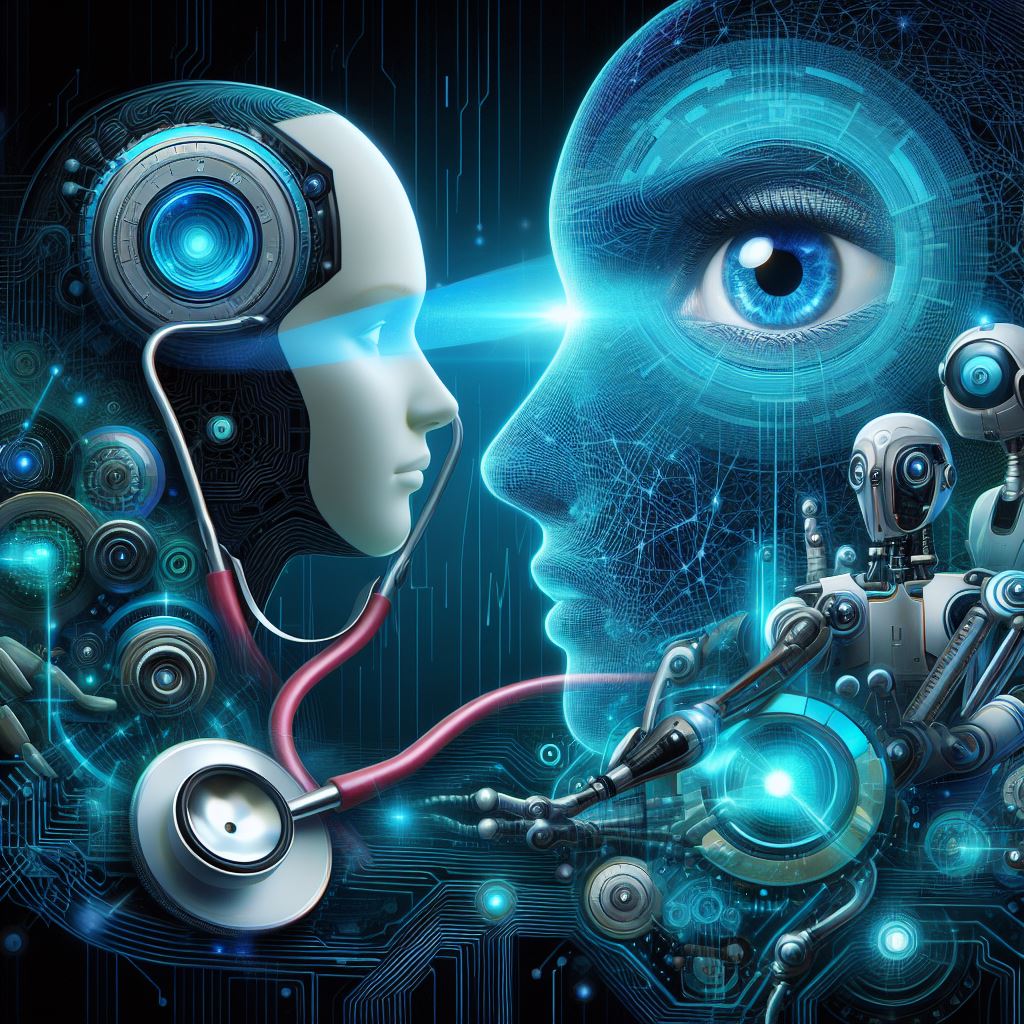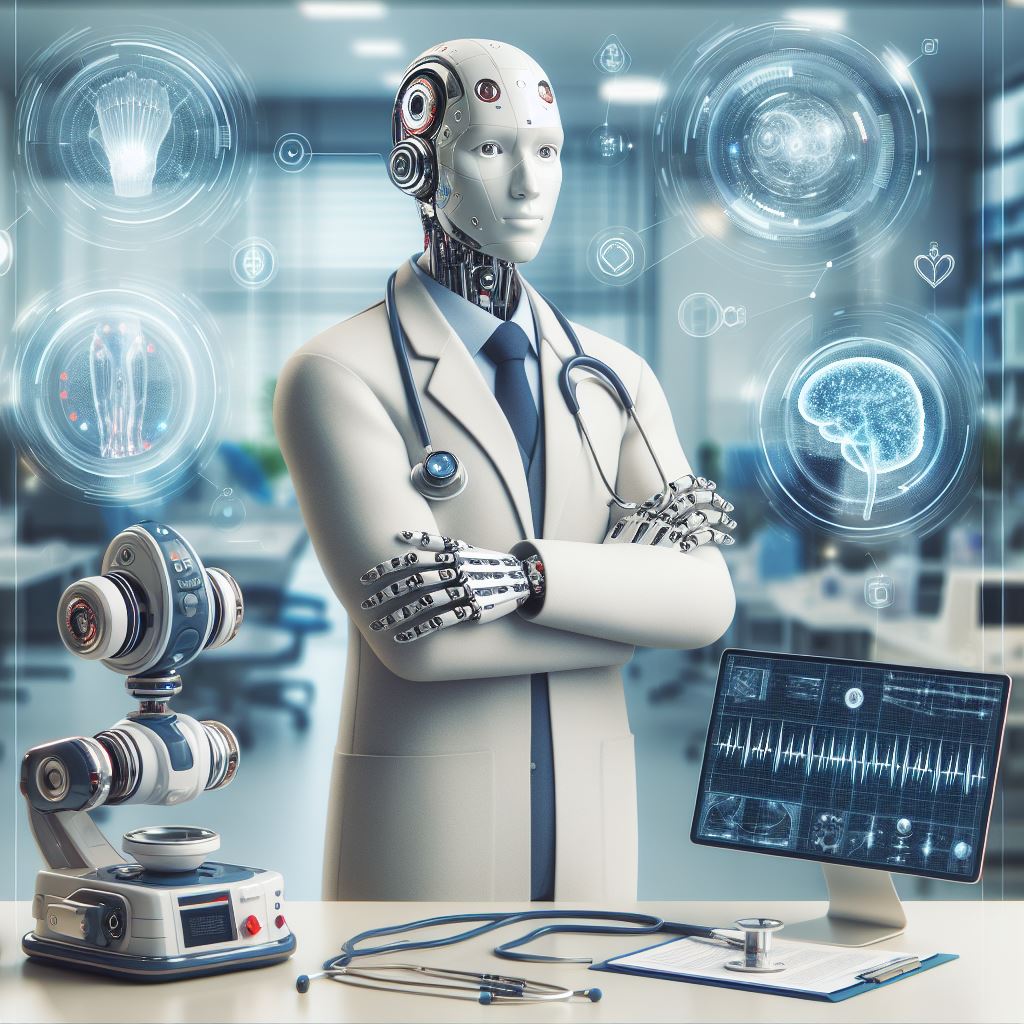THE artificial intelligence in health is an area of computer science that seeks to create machines and systems capable of performing tasks that normally require human intelligence, such as recognizing patterns, learning, reasoning and making decisions, applied to the context of health.
Dealing with complex, sensitive and vital problems for humanity is the challenge of applying AI to healthcare, one of the most promising and challenging areas of technology.
Improving the quality, efficiency and accessibility of health services, as well as increasing knowledge and innovation in the medical field, are the benefits of artificial intelligence in health, which can be defined as the use of AI techniques and tools.
Several purposes can be achieved with the use of artificial intelligence in healthcare, such as:
Table of Contents

Diagnosis with artificial intelligence
AI can help healthcare professionals identify and classify diseases based on clinical data, imaging tests, laboratory tests and more.
AI can also suggest diagnostic hypotheses, reduce errors and increase the accuracy and speed of diagnosis.
Treatment:
Considering individual characteristics, scientific evidence and patient preferences, AI can help define the best treatment plan for each patient.
AI can also monitor the patient's progress, adjust treatment according to response and warn of possible complications or adverse effects.
Prevention:
By analyzing risk factors, detecting warning signs early and guiding healthy habits, AI can contribute to disease prevention, as well as encourage patient adherence to preventive treatment through reminders, feedback and stimuli.
AI can also encourage patient adherence to preventive treatment through reminders, feedback and incentives.
Research: AI can accelerate and improve medical research by collecting, processing, and analyzing large volumes of data from a variety of sources, including electronic medical records, genomic databases, clinical trials, and scientific publications.
AI can also generate new hypotheses, discover new patterns and correlations, and create new models and algorithms.

The revolution in disease diagnosis and treatment through artificial intelligence in healthcare
Here are some examples of how artificial intelligence is transforming the way we diagnose and treat diseases:
– IBM’s Watson is an AI system that can analyze clinical data and medical literature to provide diagnosis and treatment recommendations for a variety of cancers, including leukemia, melanoma, and breast cancer.
Watson can also identify genetic mutations relevant to cancer and suggest targeted therapies specific to each patient.
– O DeepMind, do Google, é uma empresa de IA que desenvolveu uma rede neural capaz de detectar mais de 50 doenças oculares, com base em imagens de tomografia de coerência óptica (OCT).
The system can also prioritize the most urgent cases and route them to the appropriate specialists.
– O Ada, da Ada Health, é um aplicativo de IA que funciona como um assistente de saúde pessoal, que pode avaliar os sintomas do usuário, fornecer informações sobre possíveis condições médicas e orientar sobre as melhores opções de cuidado.
Ada can also track a user's health history and integrate with other healthcare services, such as telemedicine and pharmacies.
– Eko, from Eko Devices, is an AI device that can amplify and analyze heart and lung sounds using a smart stethoscope connected to a smartphone.
The device can detect abnormalities such as heart murmurs, atrial fibrillation and heart failure, and provide a detailed report to the doctor.
Artificial intelligence in healthcare has the potential to improve people's quality of life and life expectancy, as well as reduce costs and inequalities in access to healthcare.
However, artificial intelligence in healthcare also brings challenges and risks, such as ethical, legal, social and technical issues, which must be considered and regulated.
Artificial intelligence in healthcare must be used responsibly, transparently and humanely, always respecting the principles of autonomy, beneficence, non-maleficence and justice.
Reference: LOBO, Luiz Carlos. Artificial intelligence and medicine. Brazilian Journal of Medical Education, v. 41, p. 185-193, 2017.
